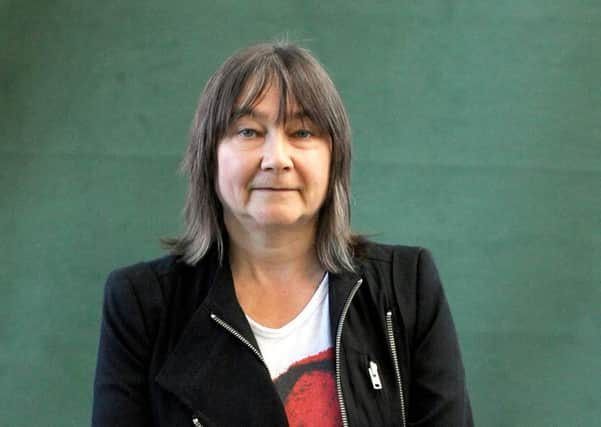Book review: Autumn, by Ali Smith


In a way, AL Kennedy’s Serious Sweet has a better claim to be the first post-Brexit novel, despite being published before the vote, in that it diagnoses with tender anger and furious empathy the state leading up to the referendum. Kennedy channels a kind of regretful, anxious bruxism; Smith presents a bewildered, open-jawed aghast. Riffing on Dickens’ A Tale Of Two Cities, the novel opens: “It was the worst of times, it was the worst of times. Again. That’s the thing about things.” Or, as she writes later on: “It is like democracy is a bottle someone can threaten to smash and do a bit of damage with.”
Smith’s work sparkles so much that one can be blinded to the fact that its intelligence, wit, sincerity and generosity is hard-earned and technically sophisticated. Autumn concerns two people linked by a third: Daniel Gluck is a very elderly former songwriter, in an “increased sleep period” that typically is the overture to the end. Elisabeth Demand is a young academic, who was once his neighbour, and is holding vigil and reading to him. As the novel progresses, we learn about Pauline Boty – a historical figure – who was the first, perhaps only, female Pop Artist: Elisabeth is studying her; Daniel knew her. A tripod is the simplest stable structure, and Smith can conjure her cadenzas because the base is so firm. There are echoes of her previous work: some of the most beautiful parts of the novel are Daniel’s fitful dreams on the edge of death, which are reminiscent of the Sara Wilby sections of Hotel World; Elisabeth is a cynical naif or naïve cynic like Amber in The Accidental, whose outspokenness reveals the absurdity and hypocrisy of the world (the sections where she deals with the bureaucracy of getting a new passport are amongst the funniest things Smith has written); Boty is a reclaimed and shifting, even shifty, feminist figure much like del Cossa in How To Be Both. This is not to in any way suggest self-plagiarism: Smith is original even when revisiting tropes she has used beforehand.
Advertisement
Hide AdOther books intersect Autumn as Elisabeth reads to Daniel: the aforementioned Dickens, Ovid’s Metamorphoses (which inspired Smith’s Girl Meets Boy); Balzac’s La Peau De Chagrin, Huxley’s Brave New World, with all the irony he slathered on that title, and the play from which Huxley took that title, The Tempest: we have, after all, an old magician and a young, forthright woman.
By one of those curious syncopated synchronicities of the literary world, another major writer, Margaret Atwood, has been engaged with that play in her novel Hag-Seed. Atwood reads the play as being about imprisonment (and forgiveness) and Smith reads it as being about enchantment (and forgiveness).
One of Daniel’s oneiric sequences has him, like Ariel, trapped in the knotted pine; brilliantly, Smith then uses the pine-scented detergent of the care home as a trigger for the dream. There is also a very moving progression throughout in Elisabeth’s relationship with her sometimes infuriating, sometimes prejudiced mother, which subverts subtly Wilde’s apothegm that “children begin by loving their parents; after a while they judge them; rarely if ever do they forgive them”. The academese words for all this might be postmodern or intertextual, terms designed to frighten readers away from the obvious truth: as Smith puts it, “‘Always be reading something,’ he said. ‘Even when we’re not physically reading. How else will we read the world? Think of it as a constant.’ ‘A constant what?’ Elisabeth said. ‘A constant constancy,’ Daniel said.”
Why is this an autumnal book? Smith cleverly parries the two different versions of autumn. The best known now is the “mists and mellow fruitfulness” of Keats, suffused with nostalgia and decrepitude. But the other autumn is the harvest, the gathering-in, the return that rewards previous labours, the autumn that James Thomson celebrated in his poem The Seasons. Smith straddles the elegiac and the celebratory throughout this glorious novel. It manages to be both pertinent and perpetual; in her own words she can “bagatelle it as it is”. Roll on Winter.
STUART KELLY